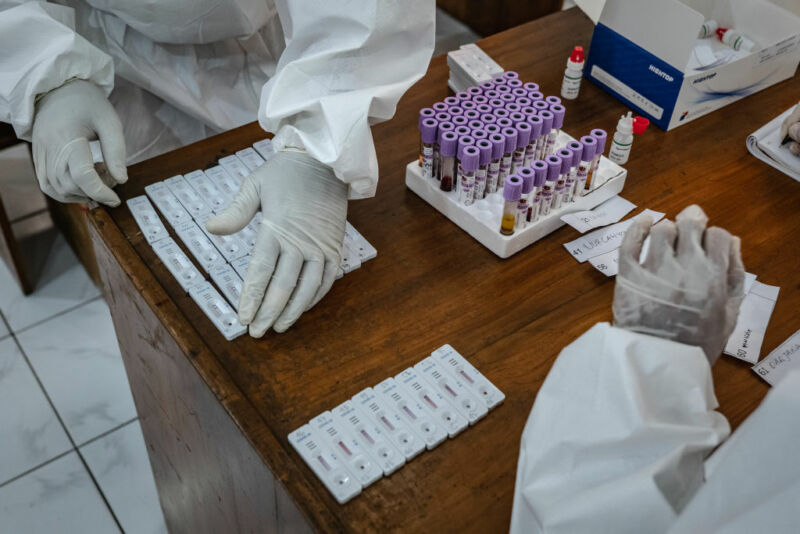We don’t know yet whether a mutation has made SARS-CoV-2 more infectious

Enlarge / YOGYAKARTA, INDONESIA - MAY 06: An Indonesian health official wearing a protective suit prepares test kits during a mass rapid test for COVID-19 amid the coronavirus pandemic on May 6, 2020 in Yogyakarta, Indonesia. (credit: Ulet Ifansasti | Getty Images)
When SARS-CoV-2 made the jump into humans late last year, it was remarkably well adapted to spread among us. But that doesn't mean things couldn't get worse, as the virus will undoubtedly pick up new mutations as its population expands, some of which might make it more dangerous to humans. In fact, a draft paper recently posted online claimed to have evidence that a more infectious strain of SARS-CoV-2 had already evolved.
But the evidence is far from conclusive, and scientists have been taking both the paper and the associated press coverage to task.
The press coverageThe Los Angeles Times had coverage that was typical of the early response to the draft paper, headlining it "Scientists say a now-dominant strain of the coronavirus appears to be more contagious than original." But by Tuesday, the coverage had been roundly criticized by scientists, and awareness of the problems with the paper was gradually increasing. This pushback came from sites dedicated to health news analysis as well as general circulation newspapers. Yet even after these criticisms had been published, new articles were still trumpeting an enhanced infectivity.
Read 14 remaining paragraphs | Comments